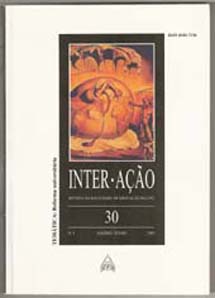PÓS-GRADUAÇÃO EM EDUCAÇÃO NO BRASIL E AS DEMANDAS PARA O V PLANO NACIONAL DE PÓS-GRADUAÇÃO
DOI:
https://doi.org/10.5216/ia.v30i1.1290Abstract
Neste artigo, analisa-se a pós-graduação em educação no Brasil, com ênfase nos desafios enfrentados pelos programas da região Centro-Oeste, no âmbito da reforma do Estado. Apresentam-se indicadores da pós-graduação brasileira que evidenciam a distribuição desigual entre as regiões do país. Esse movimento reproduz-se de forma significativa na área da educação, cujos dados indicam que, em relação ao número de bolsas do CNPq, por exemplo, as regiões Norte, Nordeste e Centro-Oeste são as que mais necessitam de auxílio; além disso, enfrentam dificuldades inclusive na atração e fixação de jovens doutores. Analisa-se também a política da Capes por meio dos programas nacionais de pós-graduação e os desafios colocados pela região Centro-Oeste no que diz respeito ao processo de avaliação na área da educação.Downloads
Downloads
Published
How to Cite
Issue
Section
License
Inter-Ação uses the Creative Commons Attribution 4.0 License for Open Access Journals (Open Archives Initiative - OAI) as the basis for the transfer of rights. Open access means making documents available on the Internet free of charge, so that users can read, download, copy, distribute, print, search, or link to the full text of documents, process them for indexing, use them as input data for software programs, or use them for any other lawful purpose, without financial, legal, or technical barriers.
Authors publishing in this journal agree to the following conditions:
1) Authors retain copyright and grant the journal the right of first publication, with the work simultaneously licensed under the Creative Commons Attribution License, which permits redistribution of the work with attribution and first publication in this journal.
2) Authors are permitted to enter into additional, separate agreements for non-exclusive distribution of the version of the work published in this journal (e.g., for publication in an institutional repository or as a book chapter), with attribution and first publication in this journal.
3) Authors are permitted and encouraged to publish and distribute their work online (e.g. in institutional repositories or on their home page) at any time before or during the editorial process, as this may generate productive changes as well as increase the impact and citation of the published work.















